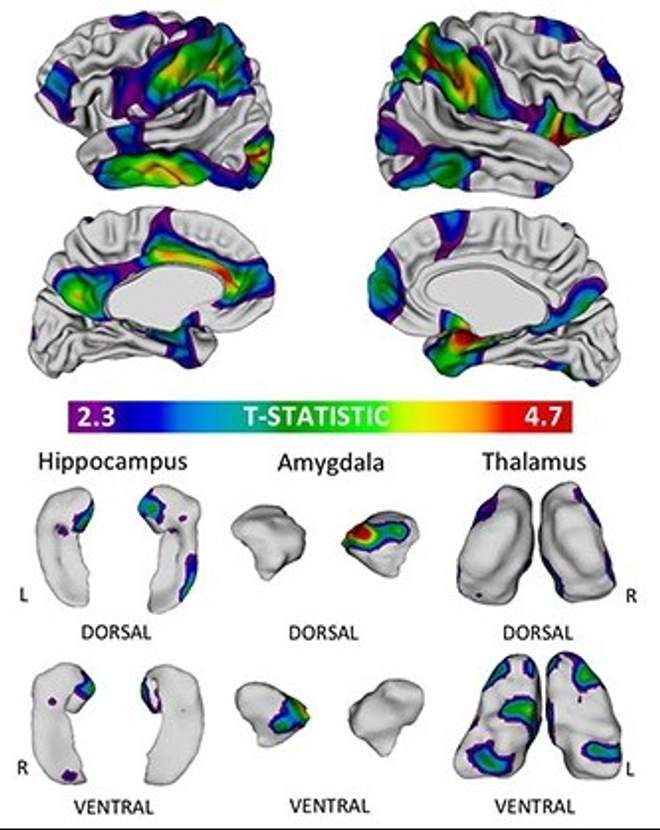US researchers found brain regions responsible for learning, language and emotional development tended to be more complex in people whose parents were educated to a higher level or who worked in professional rather than manual jobs.
Brain scans from hundreds of young people show these effects are stable throughout childhood and adolescence, the National Institute of Mental Health researchers found.
This means targeting additional support in the pre-school years could help minimise inequalities it causes in a host of life outcomes, including mental health and academic achievement, the researchers added.
“Early brain development occurs within the context of each child’s experiences and environment, which both vary significantly as a function of socioeconomic status,” said lead author Cassidy McDermott and colleagues.
In childhood, socioeconomic status, which encompasses income as well as opportunities and a string of other factors, has been linked to a range of mental health, cognitive development, and academic outcomes.
“Socioeconomic status may exert some of its effect on cognition by altering structural brain development, particularly in regions associated with language and learning,” Ms McDermott said.
“However, it is important to note that this pathway represents only one possible set of interactions between childhood environment, anatomy, and cognition.”
For the study, published in the Journal of Neuroscience, the researchers looked at 1,243 brain MRI scans from more than 623 young people aged between five and 25. While the socioeconomic score used did not take account of family income in the earliest measurements this is another determinant of socioeconomic status and also correlates with parental occupation and education factors.
Previous studies have shown links between parental occupation and earnings and an overall increase in the volume of the brain’s grey matter.
However the study takes this further and shows that higher socioeconomic status in early childhood has a pronounced effect on two areas of the brain, the thalamus and striatum.

The outer regions of the brain cortex (above) and inner structures (below) which show the greatest effect in response to childhood socioeconomic status (McDermott et al / JNeurosci (2018))
The thalamus is a key region in the centre of the brain involved in the transmission and processing of sensory information, and a larger thalamus volume is closely linked with quicker thinking and higher verbal IQ.
While differences in size and complexity of these brain regions tracked with socioeconomic status, and this has been shown to predict future life outcomes the study does not prove one causes the other.
Many other factors will play a role in early year;s development and future outcomes, and McDermott and colleagues say they hope understanding the roots in anatomy can help reduce variation.
The Independent
More about: health
















































